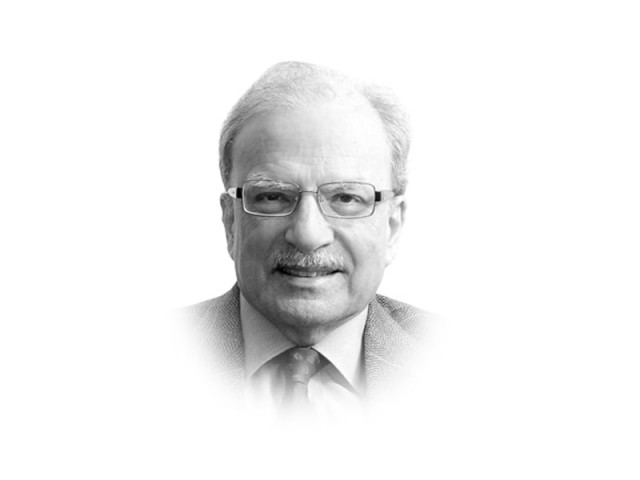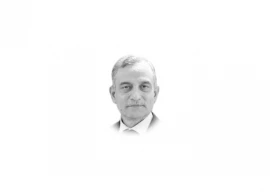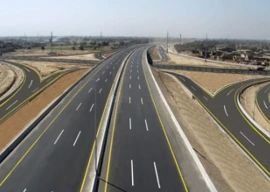
The only way to address this problem is to move the economy forward at a rate much higher than the one at the present. This could be done but, it will need serious reflection on the part of policymakers and hard work by people in power. It would not be too ambitious to aim at a rate of growth twice the present rate — to set the goal at 6.5 to 7 per cent a year. This leads me to ask two obvious questions. Is such acceleration possible? If it is possible, how soon can this target be reached? I will take up the second question first.
My own six-year experience with Latin America at the World Bank, from late 1993 to late 1999, left me with some understanding about how fast economies that had faltered can recover. This can happen once policies are set right and once the right kind of people begin to walk the corridors of power. I saw the economies of Argentina, Brazil and Mexico recover rapidly when the policymakers began to pursue the right set of objectives with the right sets of policies. In all three cases, the command of the economy was taken over by new groups who could quickly reorient their economies. In other words, sluggish economies can bounce back reasonably quickly.
There is another example close to home of a sluggish economic bounce back. Beginning in 1991, India completely altered the model of economic management. It gave up the ‘license raj’ that had put the state on the commanding heights of the economy. Instead, the private sector was allowed almost all the room it needed to take hold of the economy. The result was electric. Within a few years, the rate of increase in India’s GDP almost tripled. This rate of increase had begun to be called the Hindu rate of growth. Pakistan, too, can achieve the same kind of bounce-back over the same kind of period — three to five years. What are the policies that need to be put in place to get Pakistan’s economy to pick up speed? The list is a long one and cannot be covered in one newspaper article. I will take up just one issue today: rampant corruption.
To begin with, Islamabad needs to provide good governance and encourage the provinces to do the same. The government has failed, or is failing in almost all the areas that should be its responsibility. Much of the talk about governance is cantered on corruption. Eradication of this social and economic disease has begun to appear prominently in the agenda of at least one political party — Pakistan Tehreek-e-Insaf — and promises are being made by its leader that, if he and his associates gain power, they will go after corruption and those who have indulged in it with vengeance. Imran Khan, the party’s founder and its inspiration, has set the stage by declaring the value and location of his assets. He has claimed that he can account for all that he has spent on creating his asset base and unlike some other leaders, he does not hold assets outside the country. This is a good beginning. It places the responsibility squarely and fairly on the shoulders of those who aspire to lead the country.
But corruption is a complex phenomenon. It cannot be totally eradicated. It exits even in developed and rich societies — the societies that have highly developed institutions of governance. What needs to be addressed are those aspects of it that hinder economic growth and development and place a great deal of burden on the poor.
Corruption is present in all societies, old and new, developed and developing. It is present, for instance, in the United States. A few days ago, Rod Blagojevich, the ousted governor of Illinois, was sentenced to 14 years in prison. Among his 18 convictions is the charge that he tried to leverage his power to appoint someone to Barack Obama’s vacated Senate seat in exchange for campaign cash or a high paying job. India, next door, is politically more developed than Pakistan. It, too, is tackling the problem of rampant corruption that has involved people serving in the lowest rung of the administrative structure to those who occupy high positions. Some of the amounts involved in corrupt practices in India are staggering. In one deal pertaining to the award of licenses for cellular telephones, a minister cost the country some $40 billion of lost revenue. The minister has landed in jail.
These two examples — one from a developed and the other from an emerging economy — show that an important part of dealing with corruption is to create institutions of accountability. Pakistan has tried to do that but with little success. Some of the institutions created in the past themselves became arenas of corruption and political exploitation. People in high places have been charged but have escaped punishment. How should the institutions which need to be set up for ensuring accountability themselves become accountable?
Published in The Express Tribune, December 12th, 2011.













COMMENTS
Comments are moderated and generally will be posted if they are on-topic and not abusive.
For more information, please see our Comments FAQ